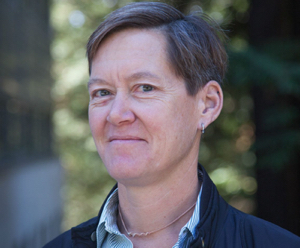Campus News
Mentoring for a new millennium
Until recently, higher education faculty and staff were largely left to intuit the qualities of a good mentor or to replicate the mentoring habits–skillful or unskillful–that they themselves experienced as undergraduates, graduate students, or postdoctoral researchers.

There has been very little in the way of innovation on the mentoring front since Odysseus sailed off to the Trojan War leaving his infant son, Telemachus, in the care of an old friend named Mentor and Odysseus’s foster brother, Eumaeus. In the epic, the goddess Athena appears in the guise of Mentor to set Telemachus back on the path of patriarchal household management when he begins to go astray. The primary qualification for the role of mentor in this story is the ability to safeguard and pass on the shared heroic values represented, if not always practiced, by Telemachus’s famously wayward father.To put this another way, neither Mentor nor Eumaeus–nor certainly Athena–were understood to need any “training” in mentoring when they stepped in to shepherd the young Greek Prince on the path to epic adulthood, a path that aimed to replicate existing values.
Almost three millennia later, things are beginning to change. University teaching and research centers, professional organizations, and funding sources for STEM research such as the NSF and NIH are radically reenvisioning the preparation for and practice of mentoring in higher education. Until recently, higher education faculty and staff, like their ancient forebears, were largely left to intuit the qualities of a good mentor or to replicate the mentoring habits–skillful or unskillful–that they themselves experienced as undergraduates, graduate students, or postdoctoral researchers. The relative cultural homogeneity of institutions with graduate programs until recently meant that that form of “passed down” mentoring practice was, at least some of the time, reasonably successful.
Now, however, with the increase in the numbers of graduate programs and corresponding efforts to foster the intellectual and creative potential enabled by a much more culturally diverse graduate student population, not to mention the professional development approach currently reshaping higher education teaching and learning, that “replication” model is being set aside in favor of a more intentional and research-based approach to developing mentoring skills.
For the past year, UC Santa Cruz’s Center for Innovations in Teaching and Learning has been researching and developing online resources, toolkits, and workshops related to mentoring across communities of teachers and learners (faculty, postdoc, graduate student, undergraduate, and peer-to-peer). This week, CITL is sending out mentor toolkits to faculty who mentor graduate students and mentee toolkits to the graduate students themselves. These resources, along with tip sheets, individual development plan templates, and sample mentoring agreements, are simultaneously being made available in the Mentoring section of CITL’s Teaching Resources website. A new workshop is also available for faculty interested in a more hands-on and discipline-specific opportunity to discuss the practice of mentoring with colleagues in their department.
The mentoring materials were developed through research conducted by Graduate Research Assistant Kirstin Wagner, who began her project in the Spring of 2018 by developing a peer mentoring program for graduate students teaching in last year’s Summer sessions. With funding from the Graduate Division and CITL, Wagner then turned her attention to faculty-graduate student mentoring relationships, and partnered with CITL Associate Director for Programs, Kendra Dority, to develop the new toolkits, workshops, and other resources.
Wagner turned the recent outpouring of research and support materials into a usable format for busy graduate students and faculty wanting to improve their mentoring skills and mentorship relationships. “It’s exciting to be a part of this national surge of interest in mentoring as a means not only of increasing undergraduate and graduate student success, but also of fostering communities of care and collaboration across disciplines and levels of study. It’s been a gratifying and instructive experience to identify successful practices and useful materials being employed on other campuses and translate them to serve our unique needs,” Wagner said.
”Healthy mentoring relationships are known to support groundbreaking research, promote equity and inclusion, and bolster ethical scholarly endeavors,” Wagner continued. “When mentorship is a collaborative and community-oriented effort, the whole university benefits, and that’s what we are starting to see here at UC Santa Cruz.”
Dority took a UC Santa Cruz team to a two-day institute in July 2018 to learn evidence-based mentoring practices and develop mentoring workshop facilitation skills with the Center for Improved Mentoring Experiences in Research (CIMER), which focuses on improving mentorship relationships, specifically in research settings like labs and fieldwork sites. “With this training, we bring back to the campus an approach to mentorship that values the development of core, evidence-based capacities like effective communication, aligning expectations, and addressing equity and inclusion in every mentoring relationship,” Dority said.
CITL’s mentoring workshop for faculty, a new addition to a larger offering of workshops, has been created to support mentors in developing these evidence-based mentoring competencies in all fields. “The CIMER Project’s curriculum takes an intentional approach to the specific needs of mentorship relationships in STEM fields. At the same time, we are able to translate the research-based practices in mentorship across disciplines, and attune our offerings to the needs of specific programs and departments.”
The 90-minute mentoring workshop is now available for faculty at department meetings and can be adapted for graduate students who want to explore the mentee role in the mentoring relationship. CITL has plans to further develop programming related to mentoring postdoctoral researchers, as well as workshops for all those on campus who mentor undergraduates, particularly in laboratory settings.